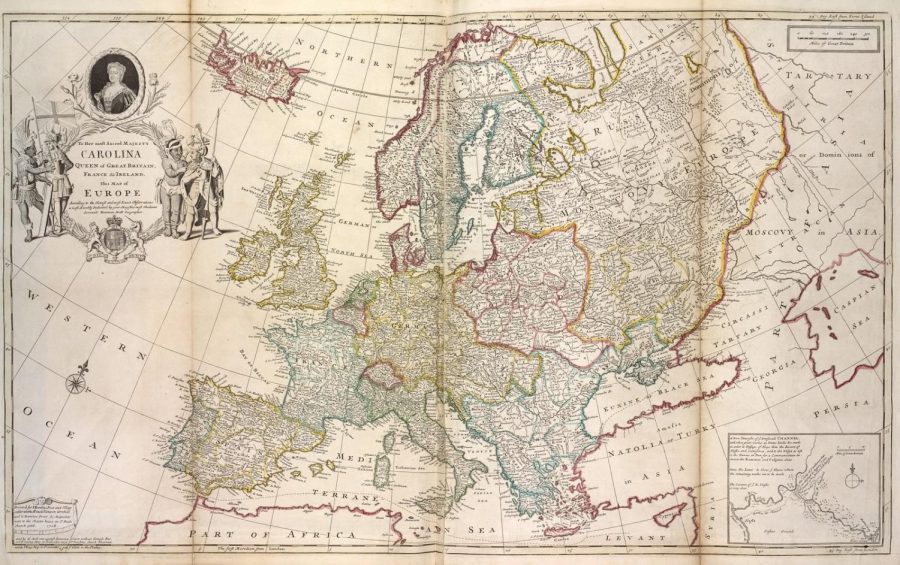The problem with a Eurocentric lens
Photo by Photo used with permission of the New York Public Library
A map of Europe. Our worldview, due to the influences of our curriculum, are skewed heavily in the Eurocentric direction, which may not adequately prepare us for the future.
Since the very first day of kindergarten, we’ve been fed a European agenda. That’s right, we may not have realized it at the time, but almost every scientist, historic figure, or composer we’ve studied over the years has been a white male. Whether it be analyzing poets like Edgar Allen Poe in 8th grade or learning about Newtons’ laws of physics, the topics that we learn about are centered around the discoveries and work done in Europe. But in a broader context, does the Eurocentric nature of our classes shape us for the real world?
As a nation, we are composed of a variety of ethnicities, and if one travels outside the Lake Zurich bubble, the amount of exposure to other cultures increases dramatically. Although the content of a class is in direct relation to the topic of the course, it is apparent that even in classes without a connection to Europe (like Honors English), the same echelon of significant figures are discussed: deceased men of European descent.
Despite the scores of influential figures from Asia, Africa, and hundreds of other overlooked nations, the accomplishments of Europeans still loom large. It is their science, their literature, their perceptions, and their religion that pervade our textbooks and lectures.
European History has been largely influenced by Christianity, and it was due to this connection that the religion seeped into works of authors who wrote in European countries. There is an inherent religious involvement in the books and plays we are taught at school, so for students who do not identify as Christian, there is a learning curve to their understanding of the texts. Faced with curriculums that hold up Christianity as the norm, it is understandable that many students leave graduation feeling as if they have a grasp on world culture as a whole, only be faced with the unpleasant reality.
But should we as students be faulted for our narrow scope of knowledge? Should the education system be blamed for the topics that they often instinctively gravitate towards? Perhaps the problem that we are left with now is an inevitable result of our history.
The cultures that evolved over the course of centuries, the people that founded our society, the education systems that took root in the United States: all of these factors play a part in the classes we take and the information we are taught. Our curriculum did not develop from all the information the world has to offer; our curriculum developed from the soil it was planted in, so it makes sense that the things we are taught are skewed in the Eurocentric direction.
But while it is okay to keep absorbing the information fed to us through our education, it is also important to keep an open mind. High school may feel like it will never end while we sit through physics notes and history lectures, but there will be a day when we will have to step beyond the borders of our culture. Whether or not our education has done enough to prepare us for the real world does not change the fact that we will encounter people and places that do not automatically fit in with the Eurocentric lifestyle we know. It will be up to us to see beyond the biases of our teaching and acquire our own knowledge outside of school.
There is equal importance in the education of different religions in the world because shaping a community of well-informed individuals is essential. Education sets up the basic foundation of each generation of individuals who are put out into the real world. Having a more well-rounded education shapes well-informed students who are able to better empathize with those from backgrounds different from theirs.

As a senior, Caroline's back for her third year as Digital EIC. If you ever catch her outside of school, she'll probably be running with the cross country...

After being in the journalism program for three years, Parul will be starting this year as a senior! Outside of the journalism lab, you can find her playing...

